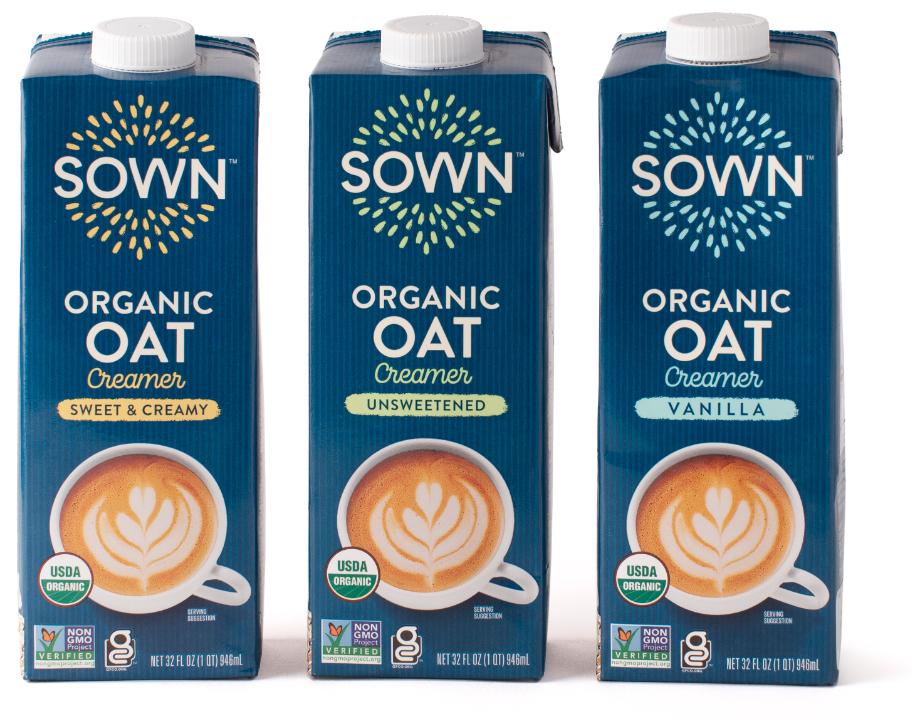MINNEAPOLIS – The management team at SunOpta Inc. has a good problem. They are working to keep pace with customer and consumer demand for plant-based innovation. The private label and contract manufacturer has completed several capacity expansion projects in the past year and is embarking on a new initiative as demand for plant-based innovation continues to outstrip current capacity.
This past February, the company said it is expanding the plant-based manufacturing capacity at its Allentown, Pa., plant, which is used for aseptic beverage processing. The new project comes on the heels of three other projects completed in the fourth quarter of 2020 that expanded plant-based extraction capabilities and increased capacity.
The supply chain investments are key to Chief Executive Officer Joseph D. Ennen’s goal of doubling the size of SunOpta’s plant-based business in five years. In fiscal 2020, ended Jan. 2, the company’s Plant-based Foods and Beverages business unit sales rose to $415 million, up 15% over plant-based sales in fiscal 2019.
SunOpta’s business features two business units, including Plant-based and Fruit-based Foods and Beverages. In fiscal 2020, the company earned $70 million, equal to 78¢ per share on the common stock, and an improvement over fiscal 2019 when the company recorded a loss of $8 million.
Total company sales in fiscal 2020 were $789 million, up 9% over the year prior.
The Fruit-based Food and Beverages unit, which produces bagged frozen fruits for private label and better-for-you fruit snacks, had sales of $374 million in fiscal 2020, up from $350 million the year prior.
“The main part of the company, over 75% of its profit, is in the Plant-based Food and Beverage business,” said Mr. Ennen in an interview with Food Business News. “That is mostly a co-pack business, and we manufacture for many leading national brands that are on the shelf. We make everything from almond milk, coconut milk, soy milk and a priority focus now is oat milk.”
Almond milk processing is a driver of revenue. Starbucks Corp. is a key customer. The prioritization of oat milk follows the company’s 2019 investment to be a leading manufacturer of the product.
“It turned out to be a fortuitous investment,” Mr. Ennen said. “That's a category growing well north of 100%."
The foray into oat milk followed Mr. Ennen’s insight that what was happening with oat milk in the European market may translate to the United States.
"In the world of co-manufacturing, being great at innovation is a real differentiator.” – Joseph Ennen, SunOpta
“I saw the opportunity to be a leader in non-nut-based milks,” he said. “Think about all plant-based milks and non-nut-based is small. Almond is the monster in the category. It makes up over two-thirds of the market. That component is covered.
“On the non-nut-based milks, the main option used to be soy. Soy was the entire category in the late ‘90s, but it fell out of favor in the 2000s and kind of never really rebounded. The third biggest plant-based milk alternative in the category was oat.”
Mr. Ennen’s insights paid as recent data from the Plant Based Foods Association and the Good Food Institute show almond milk remains the alternative milk category leader and accounts for two-thirds of plant-based milk dollar sales. Oat milk has risen to the second-leading segment, ahead of soy milk, with sales more than tripling in 2020 and growing 25-fold since 2018.
Other plant-based dairy alternatives like yogurt, cheese, ice cream, creamers and other products neared $2 billion in retail sales in 2020. Both yogurt and cheese sales rose 20% and 42%, respectively, during the year.
That bodes well for SunOpta as the company is expanding its capacity to serve customers manufacturing oat-based yogurts and ice creams.
“In the world of co-manufacturing, being great at innovation is a real differentiator,” Mr. Ennen said. “We are launching oat milk in all different forms and functions. We are providing the raw materials (to customers) to launch oat milk ice cream, oat milk yogurt and even working on oat milk beer. We're just seeing a lot of interest there.”
Adding to SunOpta’s oat innovation efforts is a sustainability benefit.
“When you make oat milk, 100 lbs of oats equals 70 lbs of liquid and 30 lbs of solids,” Mr. Ennen said. “What are we doing is finding uses for the solids.
“It turns out that solid is 50% protein and 25% fiber. We are in the process of identifying how to dry and mill it into a super-high protein, high fiber oat flour that can be used to make cookies, crackers breakfast cereal, etc.”
The company has trademarked the name Oat Gold and is working to refine and scale production of the ingredient.
“We're taking something that basically went to landfills and extracting the full value out of it,” Mr. Ennen added.
He emphasized that the majority of SunOpta’s revenues come from contract and private label manufacturing but added that SunOpta also is going to market with its own consumer packaged brands.
 A case in point is the SunOpta brand Sown, a line of organic oat milk creamers.
A case in point is the SunOpta brand Sown, a line of organic oat milk creamers.
“Our strategy is to be agnostic about innovation,” Mr. Ennen said. “We saw an opportunity in the creamer space and decided there was an opportunity.”
Sown is currently available nationally at Whole Foods Market, Sprouts Market and Amazon.com.
“We see brands as augmenting our current customer focus, and we remain committed and focused on co-manufacturing and private label as our primary business,” Mr. Ennen said during a March 3 conference call with financial analysts. “We would not be foolish enough to launch products directly on top of our existing customers’ products that we're manufacturing for them. This is an opportunity for us to continue to drive the business through innovation … more quickly.”
Looking ahead, Mr. Ennen said his goals for the company are to capitalize on the gains achieved since he took the helm of SunOpta in 2019.
“We grew revenue almost 20% and tripled EBITDA last year,” he said. “We think we have our strategies dialed in. We are accelerating and playing offense.
“We’ve done the hard work of prioritizing the portfolio. Now we need to focus on our growth strategies. 2021 is about execution and accelerating growth.”





